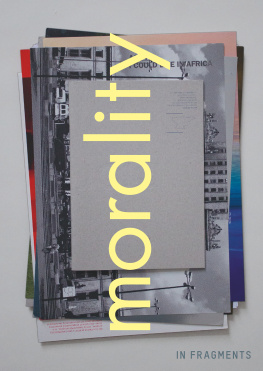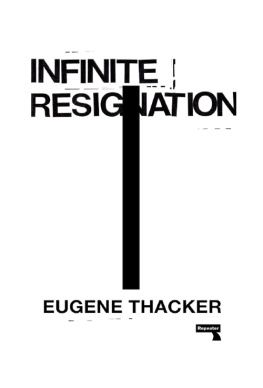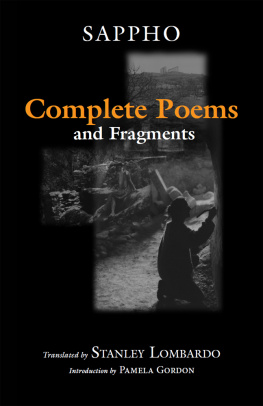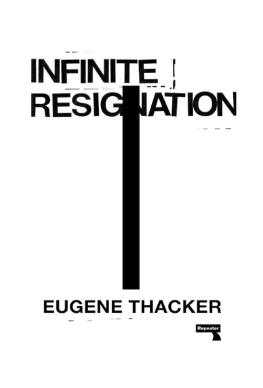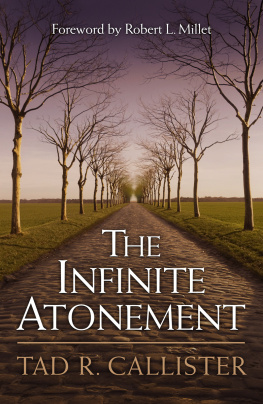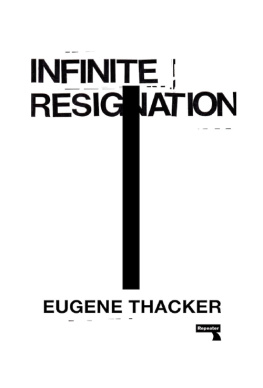Maël Renouard - Fragments of an Infinite Memory
Here you can read online Maël Renouard - Fragments of an Infinite Memory full text of the book (entire story) in english for free. Download pdf and epub, get meaning, cover and reviews about this ebook. year: 2021, publisher: New York Review Books, genre: Detective and thriller. Description of the work, (preface) as well as reviews are available. Best literature library LitArk.com created for fans of good reading and offers a wide selection of genres:
Romance novel
Science fiction
Adventure
Detective
Science
History
Home and family
Prose
Art
Politics
Computer
Non-fiction
Religion
Business
Children
Humor
Choose a favorite category and find really read worthwhile books. Enjoy immersion in the world of imagination, feel the emotions of the characters or learn something new for yourself, make an fascinating discovery.
- Book:Fragments of an Infinite Memory
- Author:
- Publisher:New York Review Books
- Genre:
- Year:2021
- Rating:3 / 5
- Favourites:Add to favourites
- Your mark:
- 60
- 1
- 2
- 3
- 4
- 5
Fragments of an Infinite Memory: summary, description and annotation
We offer to read an annotation, description, summary or preface (depends on what the author of the book "Fragments of an Infinite Memory" wrote himself). If you haven't found the necessary information about the book — write in the comments, we will try to find it.
Fragments of an Infinite Memory — read online for free the complete book (whole text) full work
Below is the text of the book, divided by pages. System saving the place of the last page read, allows you to conveniently read the book "Fragments of an Infinite Memory" online for free, without having to search again every time where you left off. Put a bookmark, and you can go to the page where you finished reading at any time.
Font size:
Interval:
Bookmark:

This is a New York Review Book
published by The New York Review of Books
435 Hudson Street, New York, NY 10014
www.nyrb.com
Copyright 2016 by ditions Grasset & Fasquelle
Translation copyright 2021 by Peter Behrman de Sinty
All rights reserved.
Cover image: Christian Hidaka (with Raphal Zarka), Niche II (Sima), 2016; courtesy the artists and Galerie Michel Rein
Cover design: Katy Homans
Library of Congress Cataloging-in-Publication Data
Names: Renouard, Mal, author. | Behrman de Sinty, Peter, translator.
Title: Fragments of an infinite memory : my life with the internet / by Mal Renouard / translated by Peter Behrman de Sinty.
Other titles: Fragments dune mmoire infinie. English
Description: New York : New York Review Books, [2020] |
Identifiers: LCCN 2019025144 (print) | LCCN 2019025145 (ebook) | ISBN 9781681372808 (trade paperback) | ISBN 9781681372815 (ebook)
Subjects: LCSH: Renouard, MalNotebooks, sketchbooks, etc. | Internet.
Classification: LCC PQ2718 . E57 F7313 2016 (print) | LCC PQ2718 . E57 (ebook) | DDC 848/.9203dc23
LC record available at https://lccn.loc.gov/2019025144
LC ebook record available at https://lccn.loc.gov/2019025145
ISBN 978-1-68137-281-5
v1.0
For a complete list of titles, visit www.nyrb.com or write to:
Catalog Requests, NYRB, 435 Hudson Street, New York, NY 10014
O ne day , as I was daydreaming on the boulevard Beaumarchais, I had the ideait came and went in a flash, almost in spite of myselfof Googling to find out what Id been up to and where Id been two evenings before, at five oclock, since I couldnt remember on my own. This must have been in November or December 2008; I remember the intersection near the Cirque dHiver where I was standing, about to cross the street, the light of that cold, gray afternoon, and the spark that shot through my mind.
It wasnt simply a matter of retrieving the information as from some mysterious guardian angel, snitch, or record keeper, the way a citizen of East Germany could have consulted his file at the secret police archives, an odd enough thought. The moment of which Im speaking offered something else: a vision of the present instant already transformed into its digital image, slowed down, blurred, wobbly, like a video on YouTube.
Images like that were no longer imperfect traces of past moments, miraculously captured. Instead the world had embodied the mode of being of those kinds of images, and I could see it quietly uniting with an infinite stock of videos from which we would later be able to extract the image of every past instant. We can already do this with recorded images, but my daydream was that the distinction between recorded and unrecorded moments had vanished. No technology was required for the world to preserve itself in its entirety. In that instant of disarray, I had fleetingly perceived this transition toward a new mode of beingthis becoming-image-memory, so to speakand web portals had become simply the wells from which we could draw a few of the innumerable images in which the entirety of the worlds past could be retrieved. Technology no longer served to record: it gave access to Beings own recording of itself.
Claude Lvi-Strauss says somewhere that even two or three minutes of film recorded by a camera placed in the streets of Pericless Athens would be enough to overturn our entire historiography of antiquity.
According to my dream, a person could, with a little patience, locate in the recesses of YouTube those three minutes of sun, dust, palaver, Logos so thick you could cut it with a knife.
A great video = a glimpse into the past, someone once noted in the comments to a YouTube excerpt from The Threepenny Opera, probably the film version directed by G.W. Pabst in 1931. This was some years ago, in 2008 or 2009; would it be possible to retrieve the comment today? The excerpt must have been Die Moritat von Mackie Messer, a piece I was listening to thenand watchingin every available performance. I remember one of my favorites was a Czech-language version dating back to the 1950s or 1960s.
In 1956, Edgar Morin wrote in The Cinema, or The Imaginary Man: Numerous science fiction stories have as their subject the cinematographic recovery of time, to the point of recapturing an incorruptible fragment of the past. lie Faure develops an analogous vision when he imagines the inhabitants of a distant planet, living at the time of the crucifixion of Jesus, sending us by missile a film that would make us actual witnesses.
There is an old daydream that locates the storeroom of the past in distant space. Canto 34 of Orlando Furioso describes the moon as the locus of time regained. All things that have vanished from the Earth are gathered therelovers tears and sighs, time spent idly gambling, unfinished projects, unquenched desires, the glory of past kings and of empires stricken from the map. A rich daydream that has since been revived by science fiction: the touching thing about Close Encounters of the Third Kind is the idea that the aviators who vanish from the Bermuda Triangle have gone elsewhere, under the care of angelic aliens whose barely glimpsed profiles essentially represent a victory over time. As if the loss of those dear to us was never absoluteas if they might be kept somewhere in reserve, waiting for and awaited by us, as if this disappearance was the price to pay for a salvation that makes final reunions always possible.
Where is the past? Henri Bergson dismisses this question at the same time he poses it, by saying that the past is, precisely, not stored anywhere but rather persists in itself, entire, in its own mode of being, in a virtual state. The past is pure memory, which we cannot access as such; for the work of memory is always, according to Bergson, a reactualization of this virtual past through images (on this point, Gilles Deleuze will attempt to go beyond Bergson, by positing a direct perception of the virtual). In my boulevard Beaumarchais daydream, it seemed to me that the worldin relation to its infinite pasthad become capable of doing what each consciousness can do in relation to its subjective life: delve into the past to retrieve images. In this world consciousness, YouTube videos had become the image-memories that reactualize the virtual past which has slipped from our grasp, a virtual past which has ceased to be present, but has not ceased to be.
Georges Charpak had an intuition that comes very close to my dream of a self-recording, retrospectively accessible Being when he wondered if it might be possible to retrieve sounds and voices from the past, unintentionally recorded on artifacts whose making involved tracing grooves: like vinyl records before their time. He was thinking of pottery in particular. He walked the halls of the Louvre in search of Greek or Mesopotamian objects that might lend themselves to such a study, though in the end he gave up on it. The chance of success, he figured, was too slim to justify the funds it would require.
Candidates for the cole Normale Suprieure, khgneux, were traditionally expected to accumulate an immense amount of knowledge. As a diversion, they would invent exam questions that were altogether unfathomable and eccentric:
Who extinguished what?
Thodose extinguished the sacred flame, in AD 391.
The internet is an infallible intellect, its knowledge no longer a ridiculous extract from the infinite space of past events, and now if you type Who extinguished what? into Google, you will find the answer: it appears on the website of the Acadmie Franaise, in Marcel Achards speech welcoming Thierry Maulnier, where he invokes a passage from Robert Brasillachs memoirs recounting that Maulnier was famous at the Lyce Louis-le-Grand for being able to reply to baroque questions like that. He could even tell you what happened next.
Font size:
Interval:
Bookmark:
Similar books «Fragments of an Infinite Memory»
Look at similar books to Fragments of an Infinite Memory. We have selected literature similar in name and meaning in the hope of providing readers with more options to find new, interesting, not yet read works.
Discussion, reviews of the book Fragments of an Infinite Memory and just readers' own opinions. Leave your comments, write what you think about the work, its meaning or the main characters. Specify what exactly you liked and what you didn't like, and why you think so.




